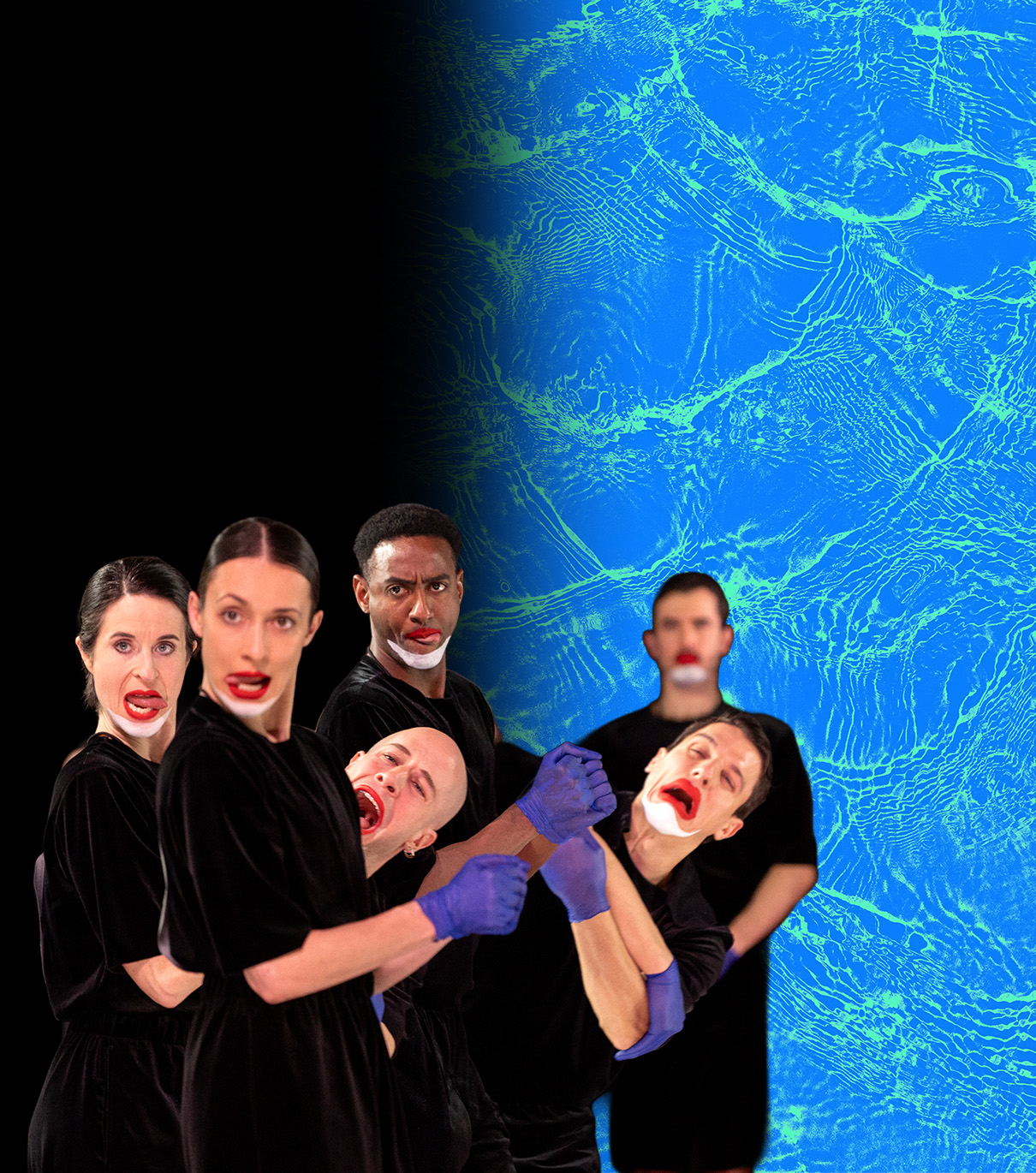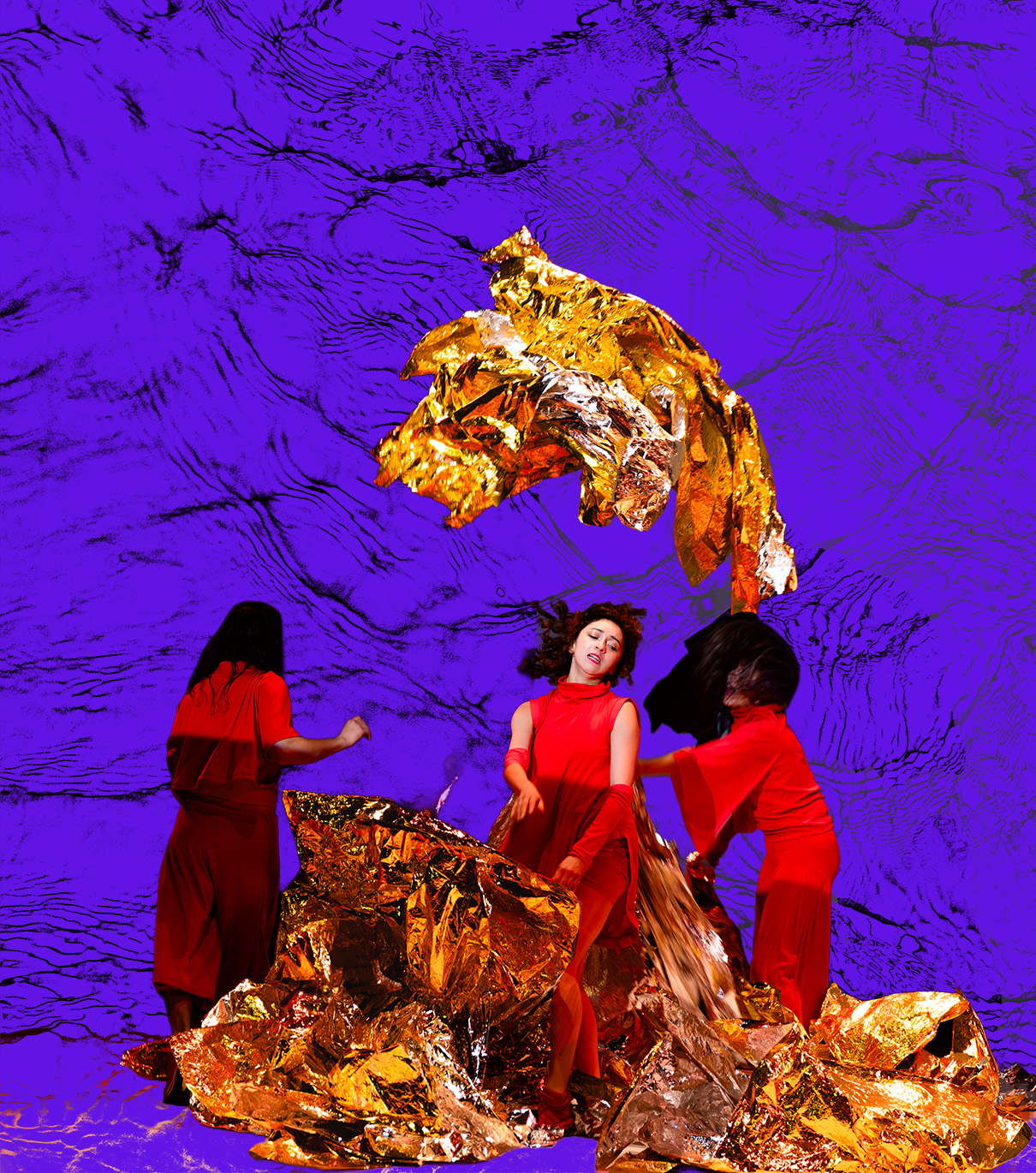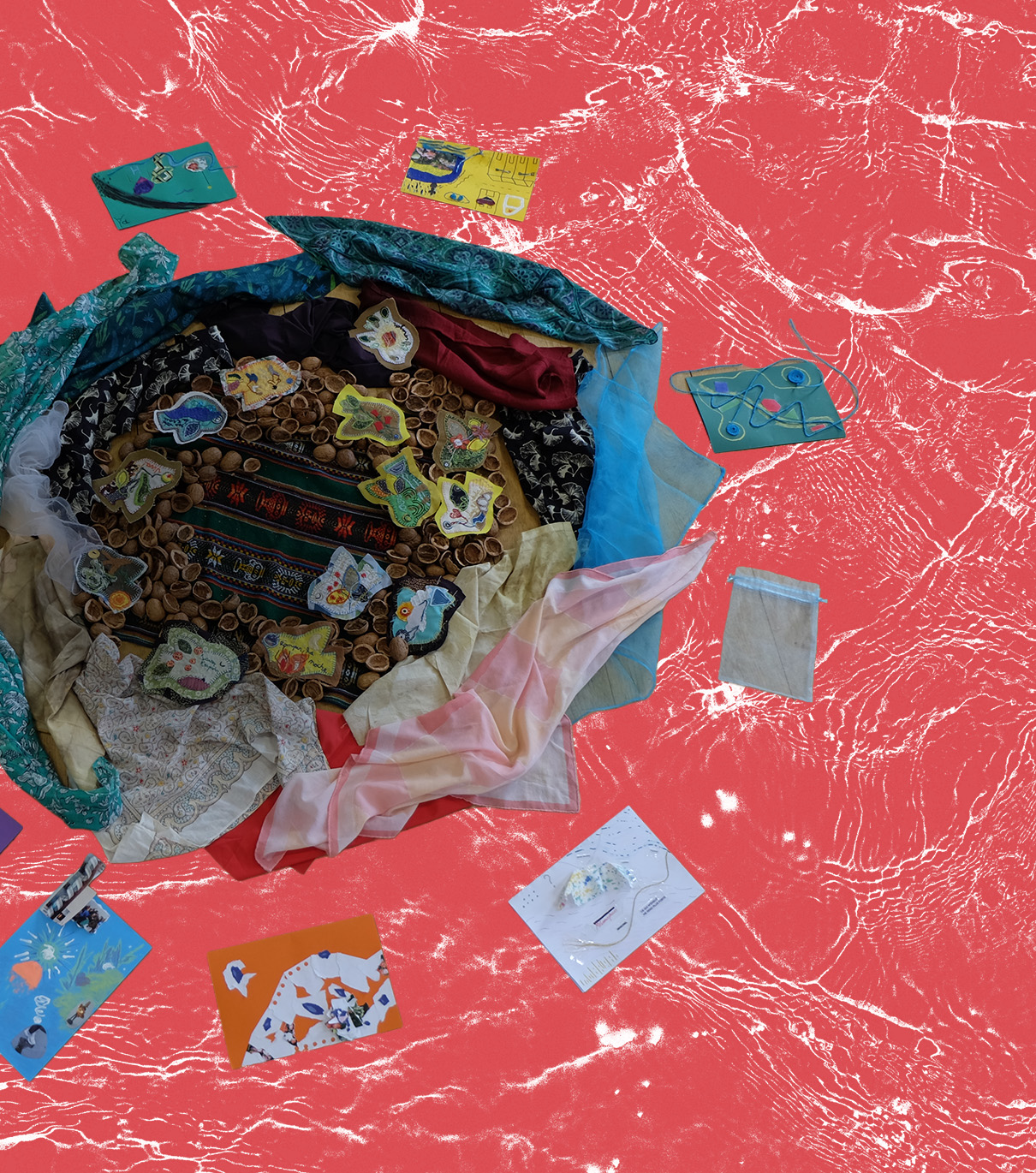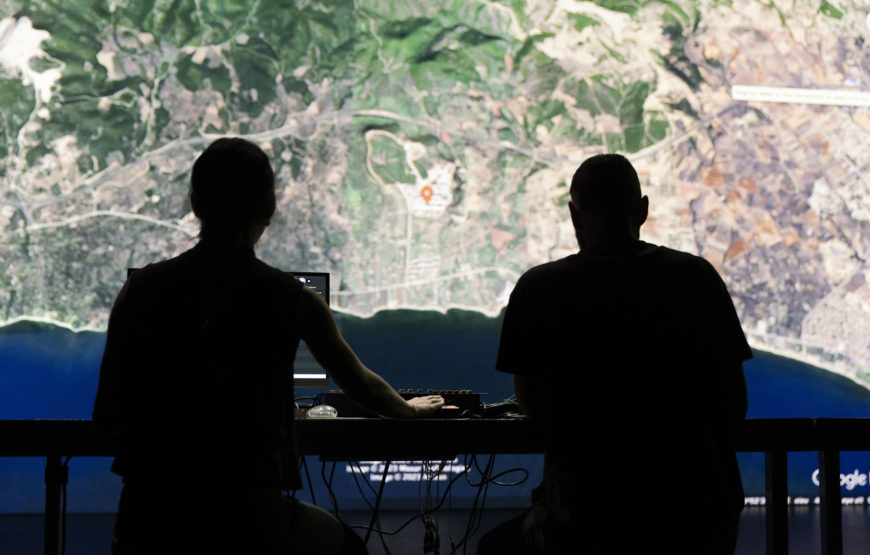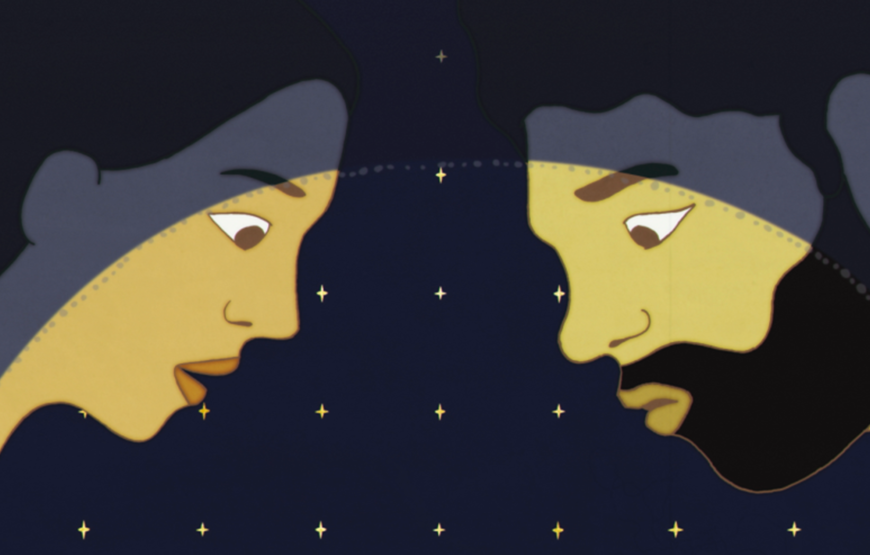Arkadi Zaides
+ More info- Live performance
- La Condition Publique, Roubaix
- 65min
NECROPOLIS
Necropolis is a documentary and choreographic investigation. By examining the concept of collective responsibility, the piece focuses on memorializing the thousands of anonymous refugees who unfortunately died in their attempts to reach safety in Europe.
The starting point of NECROPOLIS is a long, constantly expanding list of deaths, first established in 1993 by the organization United. Currently there are more than 50,000 people on that list, most of whom have not yet been identified. The choreographer and researcher Arkadi Zaides and his team used many forensic medicine methods as part of a documentary project about these deceased migrants. Using data analysis, choreographic tools, interviews with specialists in the geo-politics of migration, as well as extensive field research, NECROPOLIS reveals and exposes the human catastrophe happening each and every day at our European borders. NECROPOLIS, the city of the dead: a parallel city, a ghostly double, haunting and somehow confronting the life of the average citizen, awakened and reactivated by this artistic project.
The two performances will be followed by an exchange with Arkadi Zaides, led by François Frimat, philosopher and president of the festival. The exchange on June 9 will be conducted with philosopher Frédéric Pouillaude, and that of June 10 in the presence of Sophie Djigo, professor of philosophy and founder of the association Migraction59, and Lazaro Benitez of the Colectivo Malasangre.
- Accessibility information:
Presence of texts spoken in English
Presence of written texts in French and English
With the support of Onda – Office national de diffusion artistique
Biography(s)
Arkadi Zaides (1979) is a dancer, choreographer and visual artist from Belarus (former USSR). He emigrated to Israel with his family at the age of 11 and he currently lives and works in France, his company Institut des Croisements is based in Villeurbanne (69) since 2015. He danced in Israel with Batsheva Dance Company and Yasmeen Godder Dance Group before embarking on an independent career in 2004. He holds a master’s degree from the DAS Choreography at the AHK Academy of Theatre and Dance in Amsterdam, the Netherlands. He is currently working on a practice-based PhD, jointly at the University of Antwerp and the University of Ghent. He is a member of the CORPoREAL research group at the Royal Conservatory of Antwerp and a member of S:PAM (Studies in Performing Arts & Media) at the University of Ghent.
Arkadi Zaides’ work focuses on the impact of different political and social contexts on the body, and on the choreographic dimension -in the broad sense- of these contexts. His projects call for an inclusive approach from various social sectors that seeks to stimulate as well as challenge the viewer. For several years, Zaides’ artistic practice has taken a documentary approach, a practice that could be called documentary choreography in reference to documentary theatre: different materials are then used and explored in a short-term research process, during which these documents, interviews, archives (etc.) gradually influence and build the dramaturgy and aesthetics of the work in the making. Her shows and visual works have been presented at numerous dance and theatre festivals, museums and galleries in Europe, North and South America and Asia. He received the Emile Zola Prize for the Performing Arts for his commitment to human rights in his show Archive (2013) and the Kurt Joss Prize for his show entitled Solo Colores (2010).
Zaides works to develop platforms to agitate thought and contemporary discourse about performance. In collaboration with choreographer Anat Danieli, he directed the New Dance in Jerusalem in 2010 and 2011, providing advice and administrative and financial support to emerging choreographers. He organized Moves Without Borders, in close collaboration with the Goethe Israel Institute, a project that invited avant-garde choreographers to give workshops and shows in various locations in Israel (2012-2015). Together with Sandra Noeth and Simge Gücük, he initiated the Registration Violence project at HAU – Hebbel am Ufer in Berlin. Between 2015 and 2018, the project brought together artists, thinkers and human rights defenders who question the role of the body in the production of structural violence, in its maintenance, legitimation, aesthetics and representation.
Credits
Concept & direction Arkadi Zaides
Dramaturgy Igor Dobricic
Research Assistant Emma Gioia
Performers Arkadi Zaides, Emma Gioia
Lights Jan Mergaert
Sound creation Aslı Kobaner
Sculpture Moran Senderovich
Avatar Jean Hubert
Avatar Animation Assistant Thibaut Rostagnat
3D modeling Mark Florquin
Search and locate graves Aktina Stathaki, Amalie Lynge Lyngesen, Amber Maes, Amirsalar Kavoosi, Ans Van Gasse, Arkadi Zaides, Benjamin Pohlig, Bianca Frasso, Carolina-Maria Van Thillo, Christel Stalpaert, Doreen Kutzke, Dorsa Kavoosi, Elisa Franceschini, Elvura Quesada, Emma Gioia, Eva Maes, Frédéric Pouillaude, Friederike Kötter, Gabriel Smeets, Giorgia Mirto, Gosia Juszczak, Igor Dobricic, Ilka Van Bijlen, Jordy Minne, Joris Van Imschoot, Julia Asperska, Juliane Beck, Katia Gandolfi, Katja Seitajoki, Lilas Forissier, Lina Gilani Tsitouri, Lovis Heuss, Luca Lotano, Lucille Haddad, Maite Zabalza, Maria Sierra Carretero, Mercedes Roldan, Myriam Van Choimsot, Myrto Katsiki, Osnat Kelner, Özge Atmış, Pepa Torres Perez, Sarah Leo, Selby Jenkins, Simge Gücük, Solveig Gade, Sunniva Vikør Egenes, Tamara Vajdíková, Tilemachos Tsolis, Yannick Bosc, Yari Stilo
Administration & production Simge Gücük, Institute of Crosses
Coproduction Théâtre de la Ville, Paris (FR), Montpellier Danse 40 Bis (FR), Tanz im August; HAU Hebbel am Ufer (DE), Les ballets C de la B (BE), Charleroi Danse (BE), CCN2 – Centre chorégraphique national de Grenoble (FR), La Filature – Scène nationale de Mulhouse (FR)
Home in residence CCN-Ballet de Lorraine (FR), STUK (BE), PACT Zollverein (DE), WP Zimmer (BE), Workspacebrussels (BE), Cie THOR (BE)
Experimental aid RAMDAM, an art centre (FR)
Arkadi Zaides; Institut des Croisements is supported by the Ministry of Culture and Communication; DRAC Auvergne-Rhône-Alpes.


